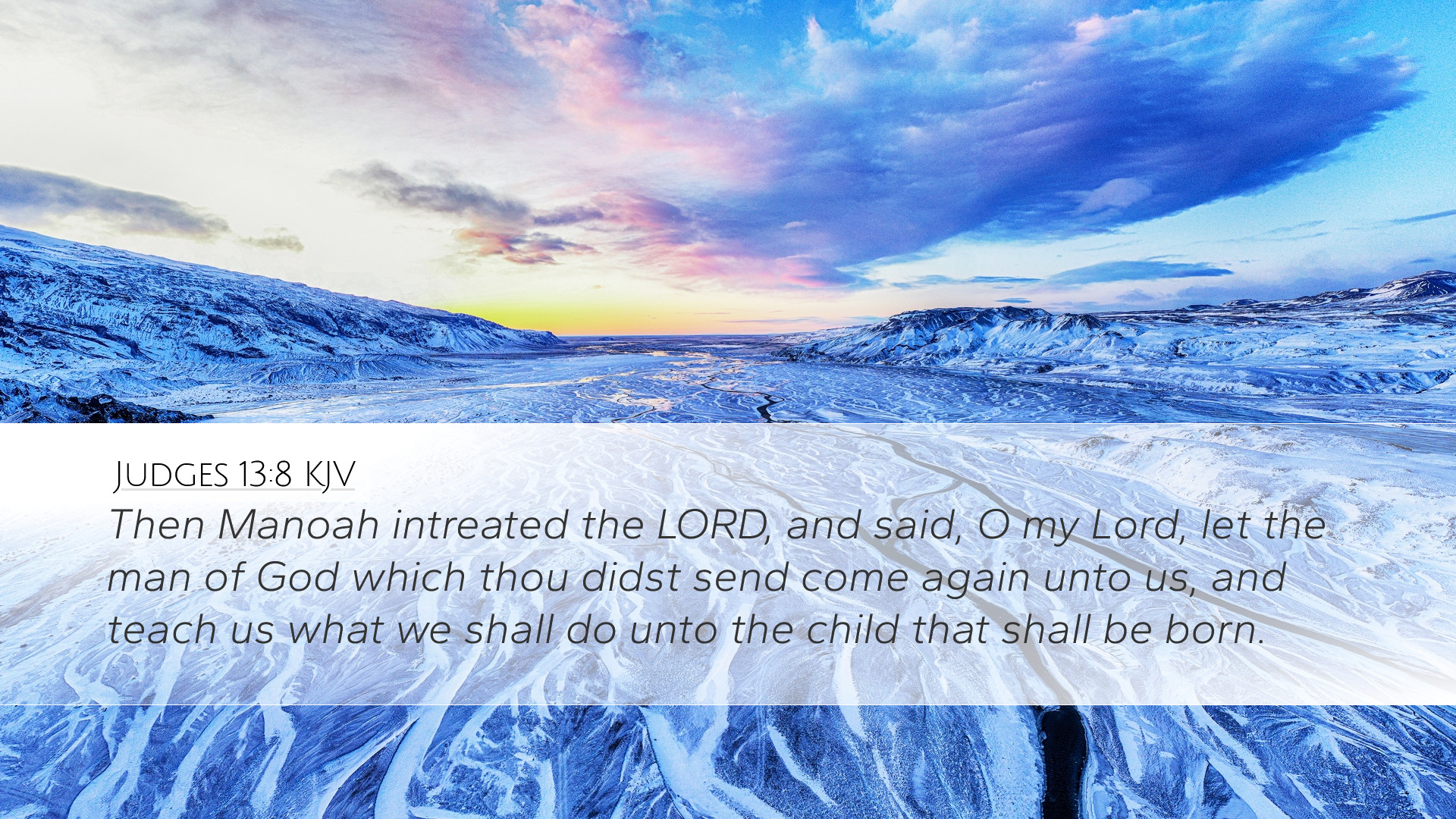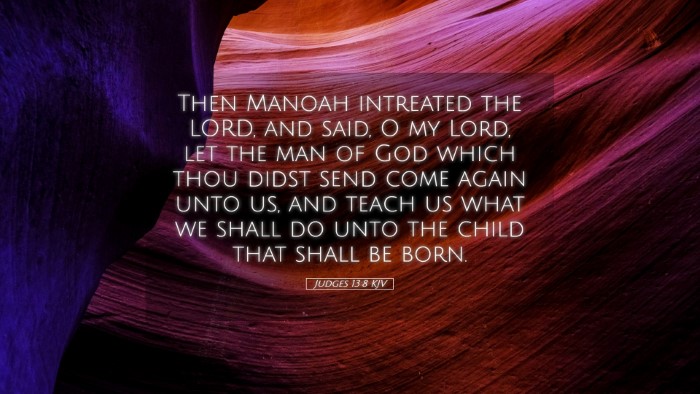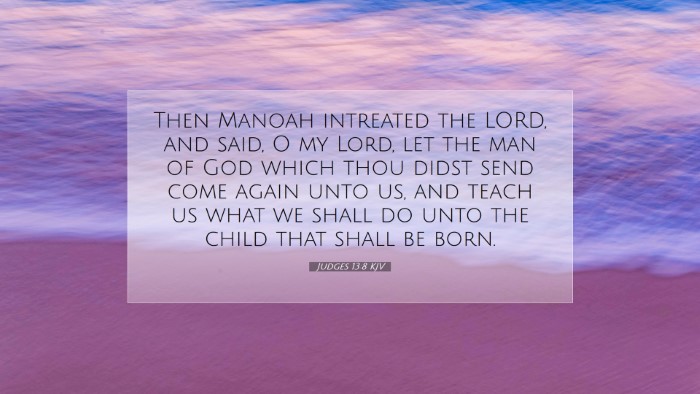Bible Commentary on Judges 13:8
Verse Context: Judges 13:8 reads: "Then Manoah prayed to the Lord and said, 'O Lord, I beg you, let the man of God whom You sent come to us again, and teach us what we shall do for the child who will be born.'" This verse depicts a crucial moment of divine communication and the earnestness of Manoah's prayer, which underscores the importance of seeking God in moments of uncertainty.
Overview of Judges 13
In Judges 13, we see the beginnings of the story of Samson, a significant figure in Israel's history. A barren woman receives a visitation from an angel who announces the birth of her son, who is to be a Nazarite dedicated to God. Manoah, her husband, desires clarity concerning the divine purpose of their future child, driving him to earnestly seek God through prayer.
Commentary Insights
Manoah's Prayer
Albert Barnes emphasizes the humility and earnestness of Manoah’s request to God. The term "beg" reflects a deep desperation and recognition of his inability to comprehend God's plans without divine assistance. This aspect of Manoah’s character is vital as it demonstrates the heart of a true seeker—one who understands the limitations of human wisdom in the face of divine intention.
The Role of Divine Guidance
Matthew Henry points out the significance of divine guidance in parenting and leadership. Manoah’s request encapsulates a profound concern not only for Samson's physical birth but for the spiritual and moral direction he and his wife should provide. This illustrates a biblical principle: parents are called to seek God’s guidance fervently when entrusted with children, as they bear the responsibility for shaping their character and spiritual destiny.
God’s Responsibility and Human Response
Adam Clarke discusses the reciprocal relationship between divine sovereignty and human initiative. Manoah's supplication signifies the need for human involvement in God’s plans—highlighting that while God is sovereign, He desires our active participation through prayer and seeking His will. Clarke reminds readers that God often requires a humble heart seeking clarity before revealing His plans.
Theological Reflections on Prayer
The verse serves as a foundation to explore the theology of prayer. Prayer is presented here not as a mere ritual, but as an earnest communication with God. Matthew Henry articulates that prayer is not only about asking but involves listening and seeking understanding. This prayer of Manoah suggests that God delights in our inquiries and is committed to guiding those who seek Him sincerely.
Applications for Pastors and Theologians
The insights from Judges 13:8 provide vital applications for pastors, students, and theologians:
- Seek Divine Guidance: Just as Manoah sought God's guidance about his future son, leaders in ministry should model seeking wisdom in all decisions, particularly concerning the next generation.
- Teach the Importance of Prayer: Encourage congregations to view prayer as a necessary dialogue with God, emphasizing that God listens and responds, an idea echoed in Manoah's request.
- Recognize the Role of Parents: Addressing the parental responsibility in raising children to know God clearly links to the need for prayer. Engage parents in discussions about their spiritual role, invoking profound accountability.
- Promote Active Human Response: Encourage engagement with God's sovereignty by teaching that while He is in control, human hearts must be actively involved in seeking His will.
Conclusion
Judges 13:8 serves as a rich source of reflection on prayer, divine guidance, and parental responsibility. As Manoah's heartfelt plea shows, earnest prayer is central to understanding God's purpose, and highlights the human role in seeking divine wisdom. This passage encourages all who engage with it to be diligent in prayer and attentive to God's voice, fostering a community grounded in faith and divine guidance.


